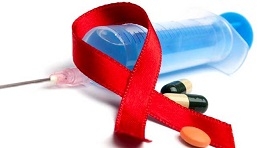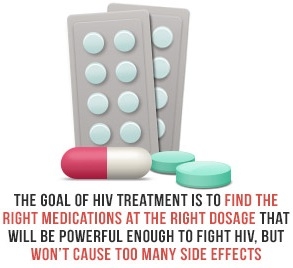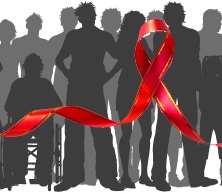People with HIV infection are often confronted with vital questions like these and are looking for answers that offer hope and encourage them to look beyond their condition. If you are one of those looking for answers, and you live in Toronto or Ontario, here are some things you should look into:

- A Physician who has experience in dealing with HIV infection. Family Physicians generally refer an HIV specialist or you can use this link and find a clinic that specializes in STD’S.
- Psychologist for counselling (you can find one using visitdoctor.ca)
- Hospitals, home care and emergency medical services
- Insurance coverage and drug cost reimbursement
Antiretroviral drugs are the foremost of treatments for HIV patients. They help to slow the growth of the virus, stop it from multiplying and thereby lower the amount of virus in the blood. Doctors usually recommend a combination of drugs as each one attacks the virus differently and the end result is more effective.
Antiretroviral drugs are expensive and a recurring cost. A monthly supply of combination ARV medications can cost anywhere between $1100 to $1600. Apart from these medications depending on your condition you might have to take immunity boosters and vitamin supplements which add to the expense.
OHIP does not cover the cost of prescription medication unless you are undergoing treatment in a hospital. However, there are alternate sources like
Ontario Drug Benefit and
The Trillium Drug Programs and Private Insurance plans (through your employer) that help cover drug costs for HIV. In addition to these, HIV clinics in hospitals, foundations like
PWA (People with AIDS) in Toronto and HIV primary care physicians can assist you with applying for PAP (Patient Assistant Programs) where the pharmaceutical company provides the HIV medication under compassion access.

The
free drug supply can last from one to three months at a given time, depending on your dosage. Unlike the medication, a combination method does not apply for drug reimbursement. Eligibility criteria is determined by individual circumstances, drug coverage system and treatment medications. Some of them require you to pay a deductible or a co pay and take care of any shortfall from the coverage. For more information on these programs, click
here.
There are 17 HIV clinics in Ontario, some of which also offer multi-faceted services such as pediatric and psychiatric care and services for the homeless. Your can assist you with finding one.
ACT, Toronto, has treatment programs, home care assistance and awareness sessions. ACT is located in downtown Toronto and has a
list of HIV specialists you can consult. They have
free counselling sessions for patients and their partners/families as everyone connected with the patient is impacted. You can schedule for a session (Monday through Friday) by calling 416-340-2437 or use
this link and register for a drop in session. There are volunteers from insurance companies who can help clarify questions related to insurance benefits and coverage. You can also participate in their facilitated group discussions and learn more about the social, emotional, physical and financial effects of HIV. These sessions are organized at regular intervals and are open to all people living with HIV.
If you are looking for a residence program, (9 Huntley St., Toronto) offers free inpatient, home care and outreach programs for those in the
advanced stages of HIV/AIDS. They provide round the clock medical and nursing care. They also have counselling programs on AIDS awareness, nutrition and self-care. (490 Sherbourne St., 2nd Floor, Toronto) runs a secure and affordable housing service and volunteer-based in-home hospice care for those living with HIV/AIDS in Toronto. is excellent resource for information on health complications related to HIV, like opportunistic infections and substance abuse. It also provides an insight into the latest and emerging treatments for HIV in Canada.

People with HIV are sometimes reluctant to disclose their condition to family and friends. While the choice of when and whom to disclose is exclusively yours remember it helps to have a
support system. Share your feelings with family, loved ones, your doctor, or a professional counselor. Monitor your condition, keep all your appointments with your doctor and take the recommended medications meticulously.
Living with HIV can be huge challenge but remain positive. With the advances in medical care, early diagnosis, medical intervention and the increase in awareness, people with HIV no longer succumb to their condition easily. Let the goal of your HIV care be to stay as healthy as possible for as long as possible.


 The free drug supply can last from one to three months at a given time, depending on your dosage. Unlike the medication, a combination method does not apply for drug reimbursement. Eligibility criteria is determined by individual circumstances, drug coverage system and treatment medications. Some of them require you to pay a deductible or a co pay and take care of any shortfall from the coverage. For more information on these programs, click here.
The free drug supply can last from one to three months at a given time, depending on your dosage. Unlike the medication, a combination method does not apply for drug reimbursement. Eligibility criteria is determined by individual circumstances, drug coverage system and treatment medications. Some of them require you to pay a deductible or a co pay and take care of any shortfall from the coverage. For more information on these programs, click here.
 People with HIV are sometimes reluctant to disclose their condition to family and friends. While the choice of when and whom to disclose is exclusively yours remember it helps to have a support system. Share your feelings with family, loved ones, your doctor, or a professional counselor. Monitor your condition, keep all your appointments with your doctor and take the recommended medications meticulously.
People with HIV are sometimes reluctant to disclose their condition to family and friends. While the choice of when and whom to disclose is exclusively yours remember it helps to have a support system. Share your feelings with family, loved ones, your doctor, or a professional counselor. Monitor your condition, keep all your appointments with your doctor and take the recommended medications meticulously.

